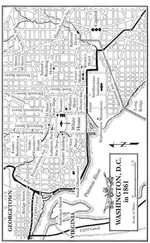John Ashton - Gossip in the First Decade of Victoria's Reign
Здесь есть возможность читать онлайн «John Ashton - Gossip in the First Decade of Victoria's Reign» — ознакомительный отрывок электронной книги совершенно бесплатно, а после прочтения отрывка купить полную версию. В некоторых случаях можно слушать аудио, скачать через торрент в формате fb2 и присутствует краткое содержание. ISBN: , Издательство: Иностранный паблик, Жанр: foreign_antique, foreign_prose, на английском языке. Описание произведения, (предисловие) а так же отзывы посетителей доступны на портале библиотеки ЛибКат.
- Название:Gossip in the First Decade of Victoria's Reign
- Автор:
- Издательство:Иностранный паблик
- Жанр:
- Год:неизвестен
- ISBN:http://www.gutenberg.org/ebooks/30665
- Рейтинг книги:3 / 5. Голосов: 1
-
Избранное:Добавить в избранное
- Отзывы:
-
Ваша оценка:
- 60
- 1
- 2
- 3
- 4
- 5
Gossip in the First Decade of Victoria's Reign: краткое содержание, описание и аннотация
Предлагаем к чтению аннотацию, описание, краткое содержание или предисловие (зависит от того, что написал сам автор книги «Gossip in the First Decade of Victoria's Reign»). Если вы не нашли необходимую информацию о книге — напишите в комментариях, мы постараемся отыскать её.
Gossip in the First Decade of Victoria's Reign — читать онлайн ознакомительный отрывок
Ниже представлен текст книги, разбитый по страницам. Система сохранения места последней прочитанной страницы, позволяет с удобством читать онлайн бесплатно книгу «Gossip in the First Decade of Victoria's Reign», без необходимости каждый раз заново искать на чём Вы остановились. Поставьте закладку, и сможете в любой момент перейти на страницу, на которой закончили чтение.
Интервал:
Закладка:
The policeman declared what the defendant asserted was entirely false. He had taken nothing to drink; and, as to challenging a man like the defendant to wrestle, the assertion was improbable.
Inspector Beresford, on being asked if he was certain Evans was drunk, answered that he was decidedly drunk.
Evans: Silence, sweep, let a gentleman speak. I can get a dozen oaths for half-a-crown.
Mr. Conant said the assault on the policeman was wanton and unprovoked, and the matter was further aggravated by the fact that a person of the defendant’s well-known pugilistic powers had chosen to attack an unoffending party. He should, therefore, call on the defendant Evans to put in good bail.
Evans: Serve his Lordship the same; for I like to have such a pal.
Mr. Conant directed that Lord Waldegrave should be put back until a second magistrate arrived.
Mr. Dyer having, soon afterwards, taken his seat on the bench, Lord Waldegrave was placed at the bar.
Policeman Filmer, C 130, stated that he went with others to the Standard public house, and took Evans into custody. Lord Waldegrave threw his arms round his friend, and swore he should not be taken. Witness swung his Lordship away, and, in doing so, his Lordship fell down. Witness picked him up, and would have let him go had his Lordship abstained from repeating his conduct. As he would not allow the police to do their duty, he took him into custody.
Mr. Conant asked his Lordship what he had to say?
Lord Waldegrave: I have nothing to say. Perhaps I had taken too much that night.
Policeman: His Lordship was very drunk.
Lord Waldegrave: Not very.
Mr. Conant: There has been no complaint of your conduct at the station house, and I daresay your Lordship feels hurt at being in the company of a person of the other defendant’s description. Taking into consideration the violence of the outrage committed by Evans, as a warning, we must inflict a heavy fine. You must, therefore, pay £5 to the Queen.
Mr. Dyer: And because – in our summary jurisdiction – we cannot go beyond that sum, we inflict it as being the highest penalty in our power.
The sum was paid, and the noble defendant discharged.
The whole social tone was low, from the highest to the lowest, and if the police court gives us occasional glimpses of aristocratic amusement, so it affords us a view of the entertainments provided for the lower classes. Let us take one.
Times , 10 March:
Hatton Garden. – For some time past, numerous complaints have been made to the magistrates of this office of two penny theatres, one in Mortimer Market, Tottenham Court Road, and the other in a field adjacent to Bagnigge Wells Road, where gangs of young thieves nightly assembled. On Wednesday last, several inhabitants of Mortimer Market attended at the Office to complain of the former establishment, when Mr. Rogers granted a warrant to apprehend the whole of the parties concerned, and on Thursday night, Duke, Baylis and Halls, of this Office, in company with Inspector Jenkins and a body of constables, proceeded to the theatre, and captured the manager, performers, and musicians, and the whole of them were, yesterday, brought to the office, and placed at the bar, when the office was excessively crowded.
There were twelve prisoners, some of whom were attired in their theatrical habiliments, with their countenances painted, which made a very grotesque appearance.
Duke being sworn, stated that, in consequence of a warrant, on Thursday night last, about 9 o’clock, he proceeded, with other officers, to a penny theatre in Mortimer Market, St. Pancras, where he found the whole of the prisoners, some of whom were engaged in performing their parts, whilst Ewyn, the manager, was employed in taking money at the doors, and the woman, Green, was acting as check taker. Campbell and Lewis were enacting their parts upon the stage, and Joseph Burrows was in his theatrical dress between them, with his face painted and wearing a huge pair of moustaches. John Pillar was in a temporary orchestra with a large violoncello, scraping away most melodramatically, whilst the players were endeavouring to humour the sounds, and to suit their action to the word, and the word to the action; and just at that part of the performance when Burrows had to exclaim, “The officers of justice are coming,” witness and his brother officers rushed upon the stage, and apprehended the whole of them.
Mr. Rogers: What description of audience was there?
Duke: A dirty, ragged set, principally consisting of boys and girls; two of them were barefooted, and had scarce a rag to cover them, and did not seem to have been washed for a month. The theatre was of the most wretched description; there was a temporary stage, and bits of scenery. The boys said they were errand boys and servants. Brierly and Smith said they were country actors out of an engagement, and had visited the place out of curiosity.
Mr. Mallett: Had they an inscription that they were “Licensed pursuant to Act of Parliament”?
Duke: They had not. On the gates was written up, “For this evening’s performance The Spectre of the Grave; after which, a comic song by Mr. Ewyn; to conclude with The Key of the Little Door.” They found various theatrical dresses and other properties, with stars, swords, etc., now produced.
Baylis proved having paid 1d. for admission. He paid the money to the woman Green. Ewyn was at the door, and he confessed that he was the manager. He took him into custody, and, subsequently, he apprehended Lewis and Campbell, at the back of the stage, in their theatrical dresses.
Mr. Rogers: Have you got “The Spectre of the Grave” here?
Inspector Jenkins: No, your Worship, he vanished. The other male performers were dressed in sandals and armour, with their helmets up.
Hall and the other officers corroborated the above evidence. Several inhabitants of Mortimer Market proved that they were, every night, alarmed by firing off guns, cries of “Fire,” clashing of swords, the most boisterous ranting and shrieks from the voices of the ladies of the corps dramatique , and the place was a perfect nuisance to the neighbourhood.
The owner of the place stated that, on the 24th of January, he let the place to a person named Summers, for chair making, when it was turned into a theatre.
Ewyn said he had engaged with Summers to divide the profits of the theatrical speculation. Summers agreed to take the place, and he (Ewyn) to provide the scenery and wardrobe; “and proud I am to say, that I have conducted the consarn respectably, which some of the neighbours can testify. This is the head and front of my offending – no more.”
Inspector Jenkins said that, about a month ago, he called on Ewyn and cautioned him, but he said that the magistrates had nothing to do with the matter.
Mr. Rogers, addressing the prisoners, said they had received a warning which they did not heed. He should not order them to find bail, but would discharge them; and, if they dared to repeat their performances after this admonition, he would grant a warrant for their apprehension, and every one of them should find bail, or be committed. They held out temptation to the children of poor persons, some of whom, it appears, were without shoes and nearly naked, who robbed their parents, or others, for the purpose of procuring the penny for admission. He would order their paraphernalia to be restored to them, but, on condition that they would remove their fittings, and desist from any future performances.
Ewyn: You must give me time to take down the seats and decorations.
Mr. Rogers: You must take them down this day.
Ewyn (with a start): What! this day? Impossible.
Mr. Rogers directed Inspector Jones to see the mandate obeyed.
The month of April is famous for the inauguration of steam traffic between England and America. A vessel named the Savannah had in 1819 crossed from America to England, but her steam was only intended to be auxiliary to her sailing power, for her boilers had only a pressure of 20 lbs. to the square inch. She sailed from New York on 28 Mar., 1819, reached Savannah on 7 Ap., and anchored at Liverpool on 19 June; on her return home her engines were taken out, and she was finally lost off Long Island. In 1836 the Great Western Railway founded the Great Western Steam Co., whose vessels were intended to run from Bristol in co-operation with the railway, and the first ship built was the Great Western, the largest steamer then afloat. She was 236 feet long and her engines showed 750 indicated horse power, her registered tonnage being 1,300. She was intended to be the pioneer ship, and was ready for sea in April, 1838; but competition was as keen then as now, and the St. Georges Steam Packet Coy. started their s.s. Sirius, for the voyage to New York, from London, on the 29th March. She had a tonnage of 700 tons, and her engines were of 320 horse-power. She was elegantly fitted-up, and started with 22 passengers, whose number was increased at Cork, and, being intended solely for a passenger boat, carried no cargo. On going down the Thames, she encountered her rival, the Great Western, which had a pleasure party on board, and a trial of speed took place between the two, resulting in favour of the Sirius. She sailed from Cork on 9th April. The Great Western sailed from Bristol on the 12th April, and both reached New York on the same day, the Sirius being first. The Great Western made, in all, 64 passages between the two countries, her fastest passage occupying 12 days, 7½ hours. At the present writing, the record voyage for an English steamer (the Lucania ) is 5 days, 7 hours, 23 minutes.
Читать дальшеИнтервал:
Закладка:
Похожие книги на «Gossip in the First Decade of Victoria's Reign»
Представляем Вашему вниманию похожие книги на «Gossip in the First Decade of Victoria's Reign» списком для выбора. Мы отобрали схожую по названию и смыслу литературу в надежде предоставить читателям больше вариантов отыскать новые, интересные, ещё непрочитанные произведения.
Обсуждение, отзывы о книге «Gossip in the First Decade of Victoria's Reign» и просто собственные мнения читателей. Оставьте ваши комментарии, напишите, что Вы думаете о произведении, его смысле или главных героях. Укажите что конкретно понравилось, а что нет, и почему Вы так считаете.












